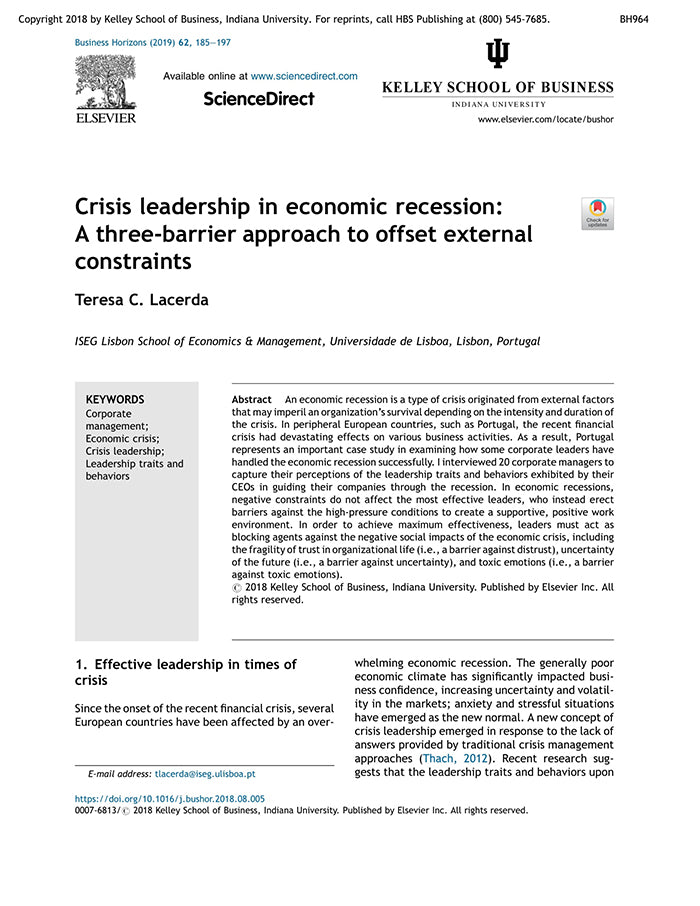Crisis Leadership in Economic Recession: A Three-Barrier Approach to Offset External Constraints
受取状況を読み込めませんでした
An economic recession is a type of crisis originated from external factors that may imperil an organization's survival depending on the intensity and duration of the crisis. In peripheral European countries, such as Portugal, the recent financial crisis had devastating effects on various business activities. As a result, Portugal represents an important case study in examining how some corporate leaders have handled the economic recession successfully. I interviewed 20 corporate managers to capture their perceptions of the leadership traits and behaviors exhibited by their CEOs in guiding their companies through the recession. In economic recessions, negative constraints do not affect the most effective leaders, who instead erect barriers against the high-pressure conditions to create a supportive, positive work environment. In order to achieve maximum effectiveness, leaders must act as blocking agents against the negative social impacts of the economic crisis, including the fragility of trust in organizational life (i.e., a barrier against distrust), uncertainty of the future (i.e., a barrier against uncertainty), and toxic emotions (i.e., a barrier against toxic emotions).
【書誌情報】
ページ数:13ページ
サイズ:A4
商品番号:HBSP-BH964
発行日:2019/3/15
登録日:2019/4/18


